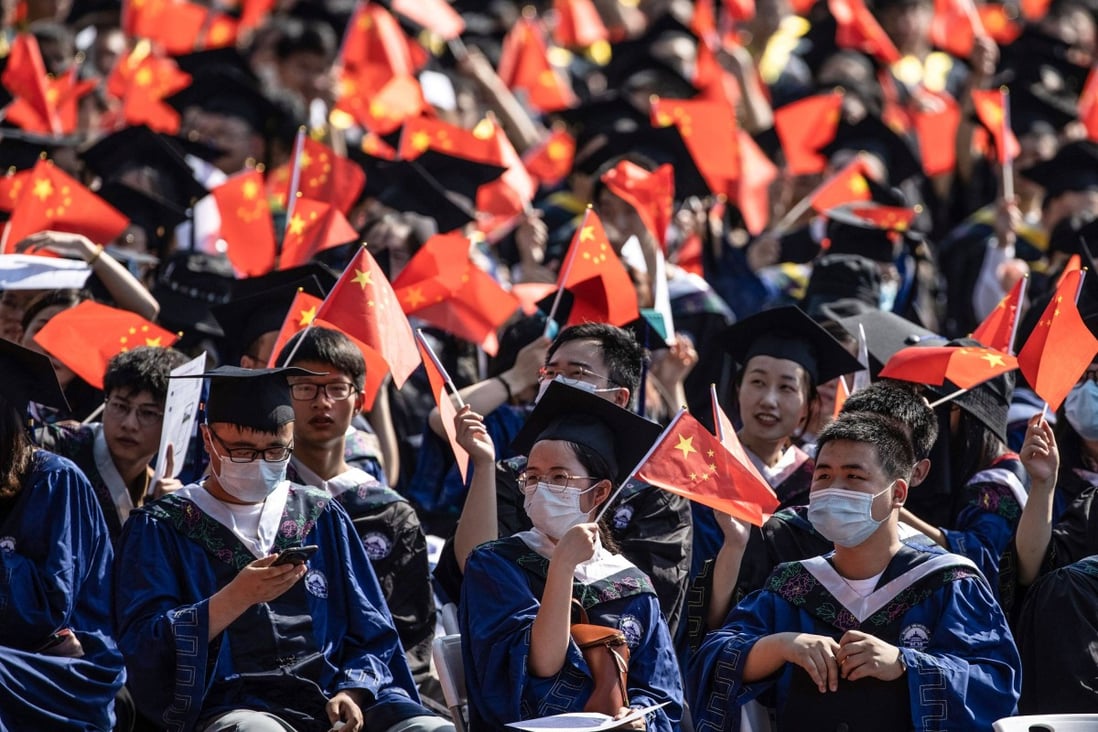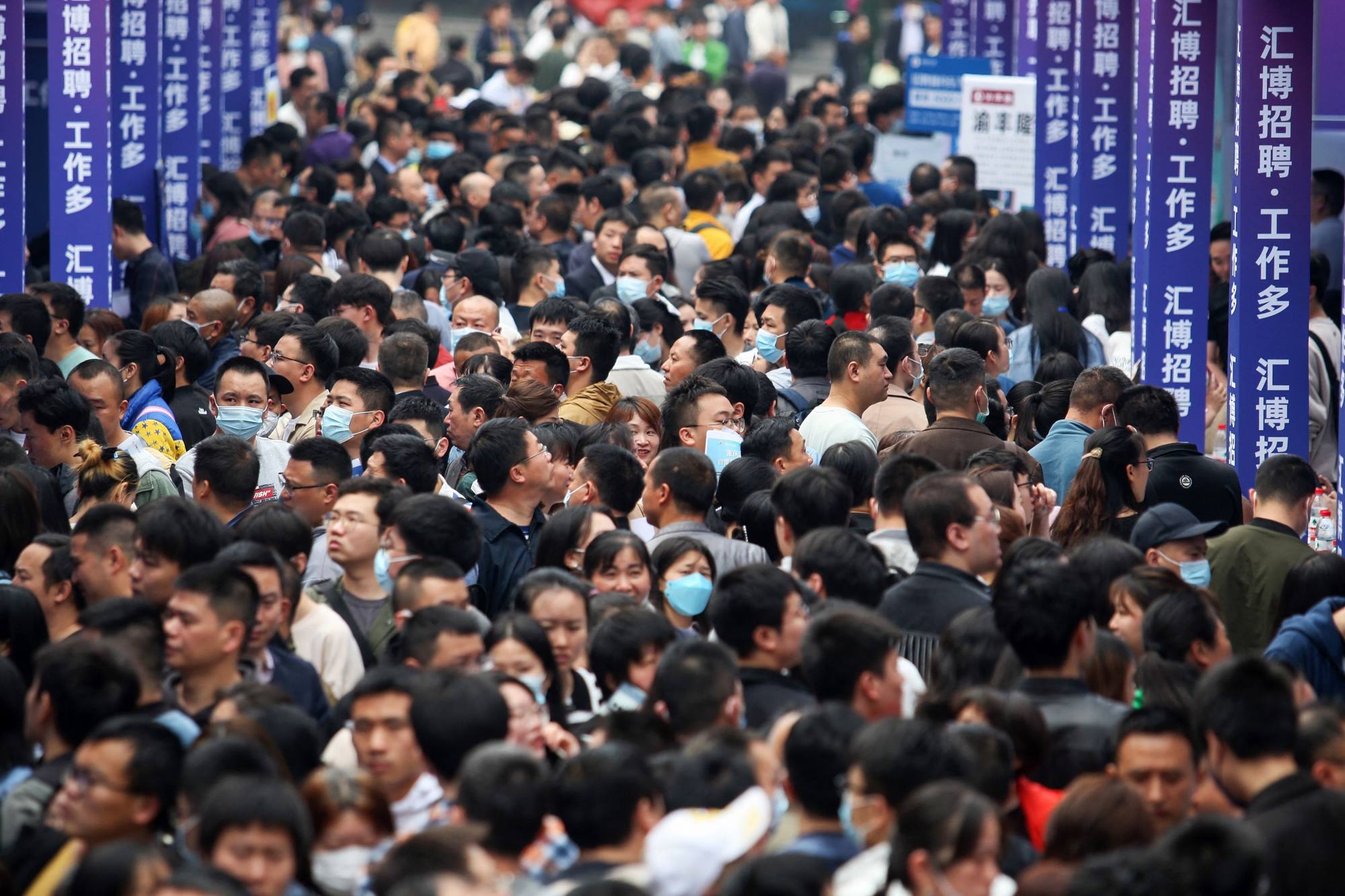China youth unemployment: female humanities graduates, poor students among the least successful jobseekers, Zhaopin CEO says
- Science majors, men and graduates from well-known universities are having a better time finding jobs in China, says Guo Sheng at a Luohan Academy summit
- Young people from impoverished households and workers aged above 35 are also having a tough time in the current job market, he says
Artificial intelligence+ FOLLOW

Xinmei Shen
+ FOLLOW
Published: 6:30pm, 23 Jun, 2023
Why you can trust SCMP
Post

Graduates of a university in Wuhan, China attend a graduation ceremony on Friday. Photo: STR/AFP
Women who hold humanities degrees from lesser-known universities are among three groups of jobseekers having the hardest time finding work in China amid record-high youth unemployment, according to Guo Sheng, CEO of Zhaopin, one of the country’s largest online recruiting platforms.
While the Beijing-based internet recruiter has been designing new algorithms to help desperate jobseekers find suitable opportunities, the situation is the most “painful” for female jobseekers who graduated with non-STEM degrees from schools outside the government’s “985” and “211” projects – a list that includes prestigious names such as Tsinghua and Peking, Guo said.
“Science majors are OK. Men are OK. And [those from] well known universities are OK,” Guo said at a panel discussion during the annual digital economy conference hosted this week by Alibaba Group Holding’s open think tank Luohan Academy in Hangzhou, capital of eastern Zhejiang province.
Alibaba owns the South China Morning Post.
00:00 / 00:15
Growing number of young people in China flock to religious temples to escape life’s pressures
China is seeing its highest youth unemployment rates in decades, posing a challenge to Beijing’s post-pandemic recovery efforts.The jobless rate for people aged between 16 to 24 has gradually climbed since 2020 and hit new highs over the past two months, reaching 20.8 per cent in May, up from 20.4 per cent in April. Economists also warned that the worst is yet to come, as the rate is expected to rise further in July and August, with a record 11.58 million university graduates set to leave campus.
Young people from impoverished households and workers aged above 35 – especially sole bread winners with mortgages and children who attend expensive schools – are two other groups having the toughest time in the current job market, according to Guo.
Despite Zhaopin’s efforts to match these workers with the right openings, even going as far as urging them to switch industries, the task has proved challenging, partly because employers are “picky”, Guo said.
“We spent a lot of money doing this, but it doesn’t seem to be helpful,” he said. “Employers are not paying.”

People attend a job fair in southwestern China’s Chongqing. Photo: AFP
Faced with a dim employment outlook amid a slow economic recovery, China’s digital platforms have emerged as a safety net for the country’s youngest workers, recent studies found.
EVERY FRIDAY
A weekly newsletter dedicated to celebrating women in Asia and sharing stories that matter to all of us
GET THE NEWSLETTER
By registering, you agree to our T&C and Privacy Policy
An increasing number of people in China’s youngest generation are taking to online platforms operated by tech giants including WeChat operator Tencent Holdings and TikTok owner ByteDance in search of job opportunities, according to a report last month by the state-backed China Academy of Labour and Social Security (CALSS).
These include working as part-time vloggers, content writers and online shop owners, the CALSS said. WeChat, for instance, helped create more than 50 million employment opportunities last year, according to the report, which also said that more than 60 per cent of the surveyed part-time workers on digital platforms expressed interest in switching to full-time roles in their chosen professions.



